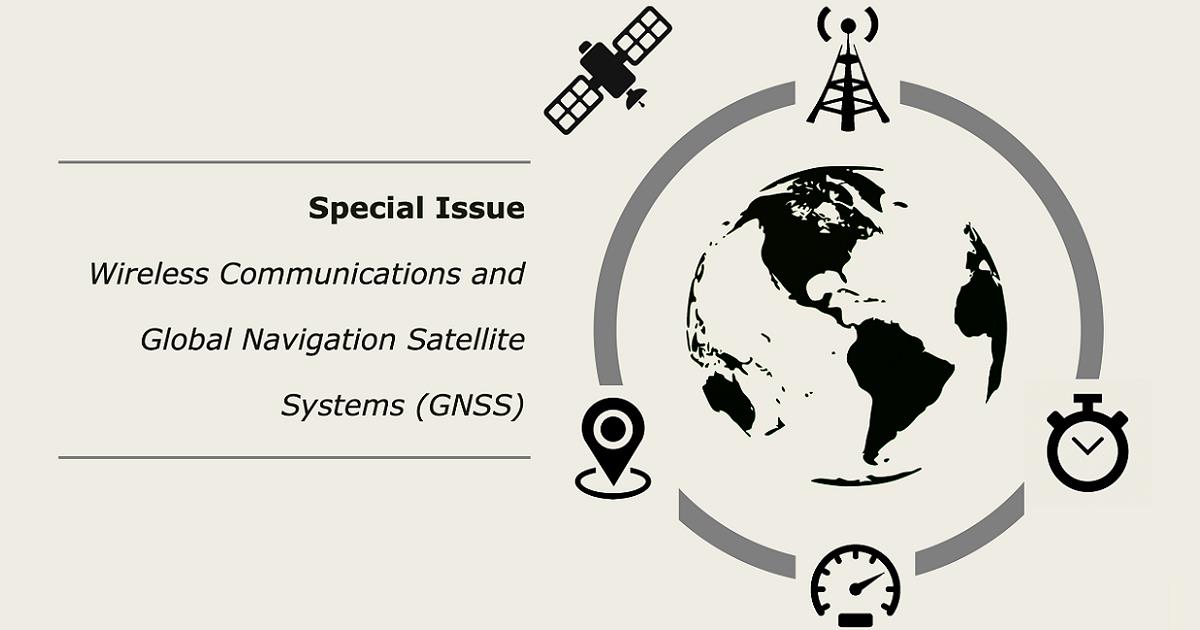- 2.5Impact Factor
- 5.5CiteScore
- 20 daysTime to First Decision
Wireless Communications and Global Navigation Satellite Systems (GNSS)
This special issue belongs to the section “Electrical, Electronics and Communications Engineering“.
Special Issue Information
Dear Colleagues,
As Global Navigation Satellite Systems (GNSS) evolve into a mature technology, issues related to their inherent limitations and reliability become increasingly evident. Simultaneously, the demand for GNSS applications is growing, with increasingly stringent requirements. However, this landscape also presents opportunities for advancements, both via the refinements of GNSS technologies and their integrating with other systems, such as terrestrial or space-based wireless communications, which may shape the future of Positioning, Navigation, and Timing (PNT).
Innovative technologies, such as the introduction of LEO constellations (LEO-PNT), 5G integration, multisensor positioning, and enhanced receiver hardware and software—including advanced AI algorithms—promise greater accuracy, coverage, and resilience against interference, thus enhancing the reliability of navigation. These developments could revolutionize industries, significantly improving a range of applications, from indoor PNT to precision agriculture and autonomous safety-critical systems. They also provide new opportunities for future interplanetary navigation and the application of GNSS in atmospheric or environmental sounding, expanding the possibilities of accurate and secure positioning.
This Special Issue will publish high-quality research papers whose scope includes, but is not limited to, the following topics:
Space Component
- LEO constellations for enhanced and alternative PNT;
- Augmentation of GNSS in intelligent transport systems;
- Precise timing for GNSS and terrestrial systems;
- Joint sensing and navigation satellite systems;
- The use of terrestrial and non-terrestrial signals of opportunity for PNT.
Channel Component
- Navigation security and authentication;
- Navigation resilience to spoofing and jamming;
- GNSS for atmosphere sounding;
- GNSS for radio channel sounding;
- GNSS architectures for indoor PVT.
User Component
- RF front ends and antennas for GNSS receivers;
- Advanced software and algorithms for GNSS receivers;
- Open-source data and tools for GNSS;
- AI-driven positioning and navigation;
- 5G and multi-sensor assisted GNSS positioning.
Market Component
- Multi-sensor agricultural positioning solutions;
- The contribution of GNSS to unmanned systems;
- GNSS reflectometry for environmental measurements;
- Autonomous and safety critical applications;
- Future of lunar and space navigation.
Prof. Dr. Antonio Pérez Yuste
Prof. Dr. Alejandro García Lampérez
Guest Editors
Manuscript Submission Information
Manuscripts should be submitted online at www.mdpi.com by registering and logging in to this website. Once you are registered, click here to go to the submission form. Manuscripts can be submitted until the deadline. All submissions that pass pre-check are peer-reviewed. Accepted papers will be published continuously in the journal (as soon as accepted) and will be listed together on the special issue website. Research articles, review articles as well as short communications are invited. For planned papers, a title and short abstract (about 250 words) can be sent to the Editorial Office for assessment.
Submitted manuscripts should not have been published previously, nor be under consideration for publication elsewhere (except conference proceedings papers). All manuscripts are thoroughly refereed through a single-blind peer-review process. A guide for authors and other relevant information for submission of manuscripts is available on the Instructions for Authors page. Applied Sciences is an international peer-reviewed open access semimonthly journal published by MDPI.
Please visit the Instructions for Authors page before submitting a manuscript. The Article Processing Charge (APC) for publication in this open access journal is 2400 CHF (Swiss Francs). Submitted papers should be well formatted and use good English. Authors may use MDPI's English editing service prior to publication or during author revisions.
Keywords
- GNSS LEO constellations
- GNSS augmentation
- precise PNT
- joint sensing and navigation
- navigation resilience
- AI-driven GNSS
- 5G assisted GNSS
- GNSS safety critical applications
- GNSS unmanned systems
- space navigation

Benefits of Publishing in a Special Issue
- Ease of navigation: Grouping papers by topic helps scholars navigate broad scope journals more efficiently.
- Greater discoverability: Special Issues support the reach and impact of scientific research. Articles in Special Issues are more discoverable and cited more frequently.
- Expansion of research network: Special Issues facilitate connections among authors, fostering scientific collaborations.
- External promotion: Articles in Special Issues are often promoted through the journal's social media, increasing their visibility.
- e-Book format: Special Issues with more than 10 articles can be published as dedicated e-books, ensuring wide and rapid dissemination.

